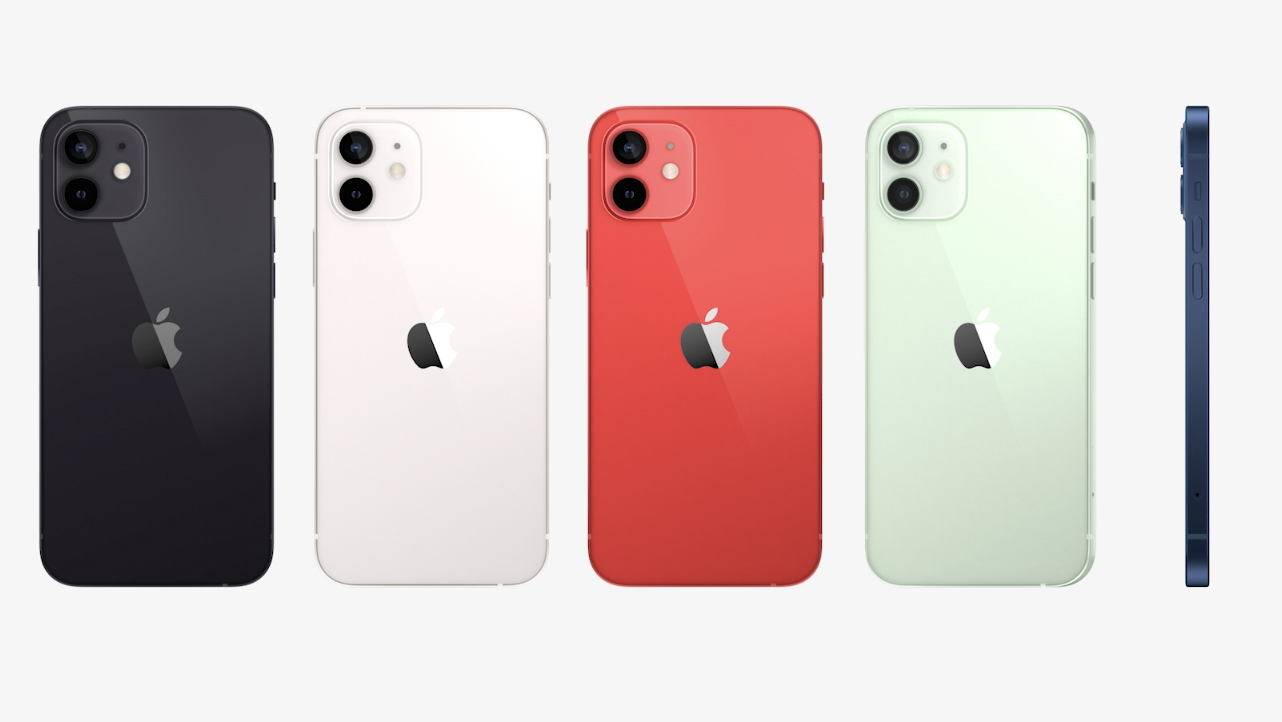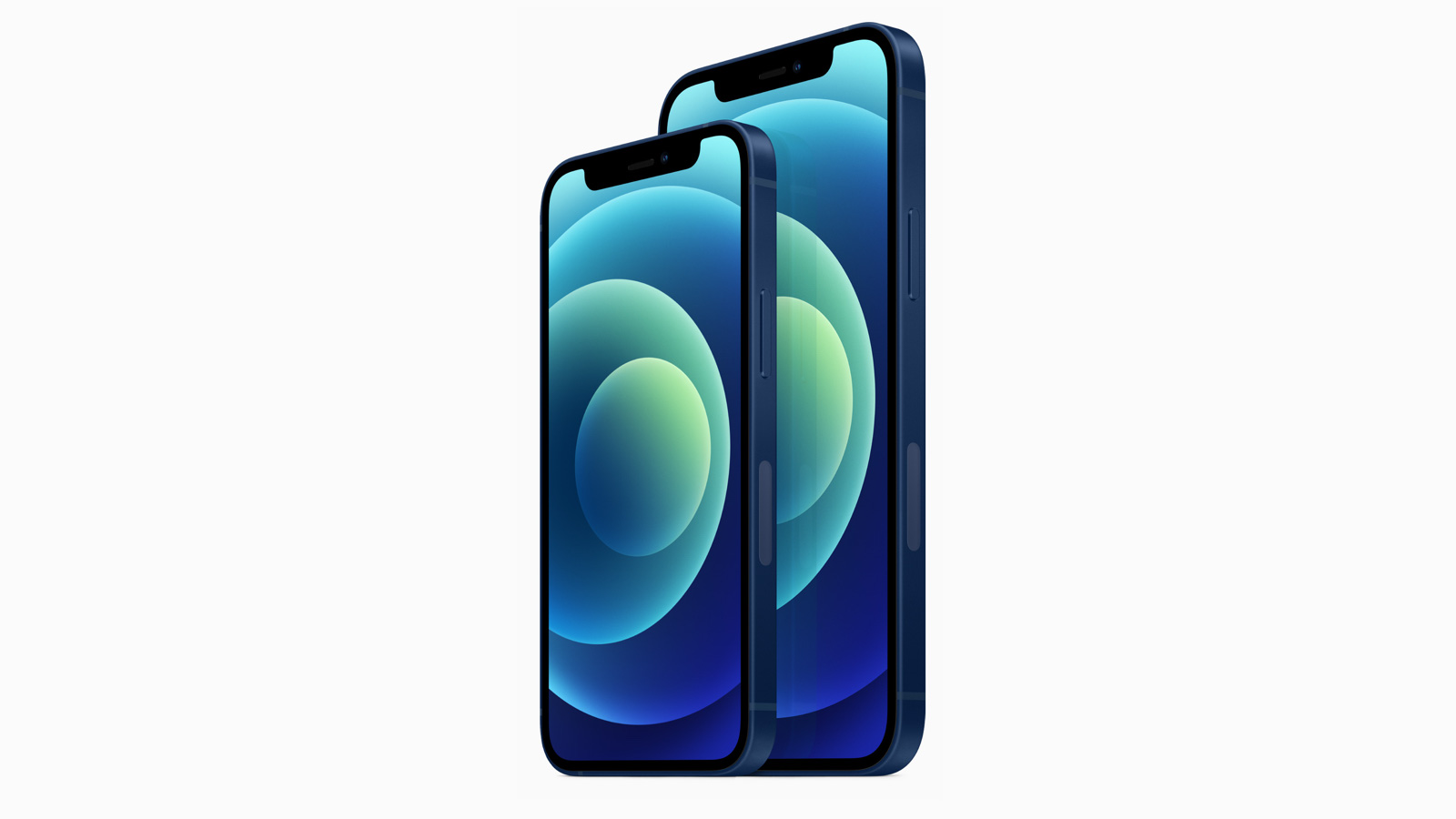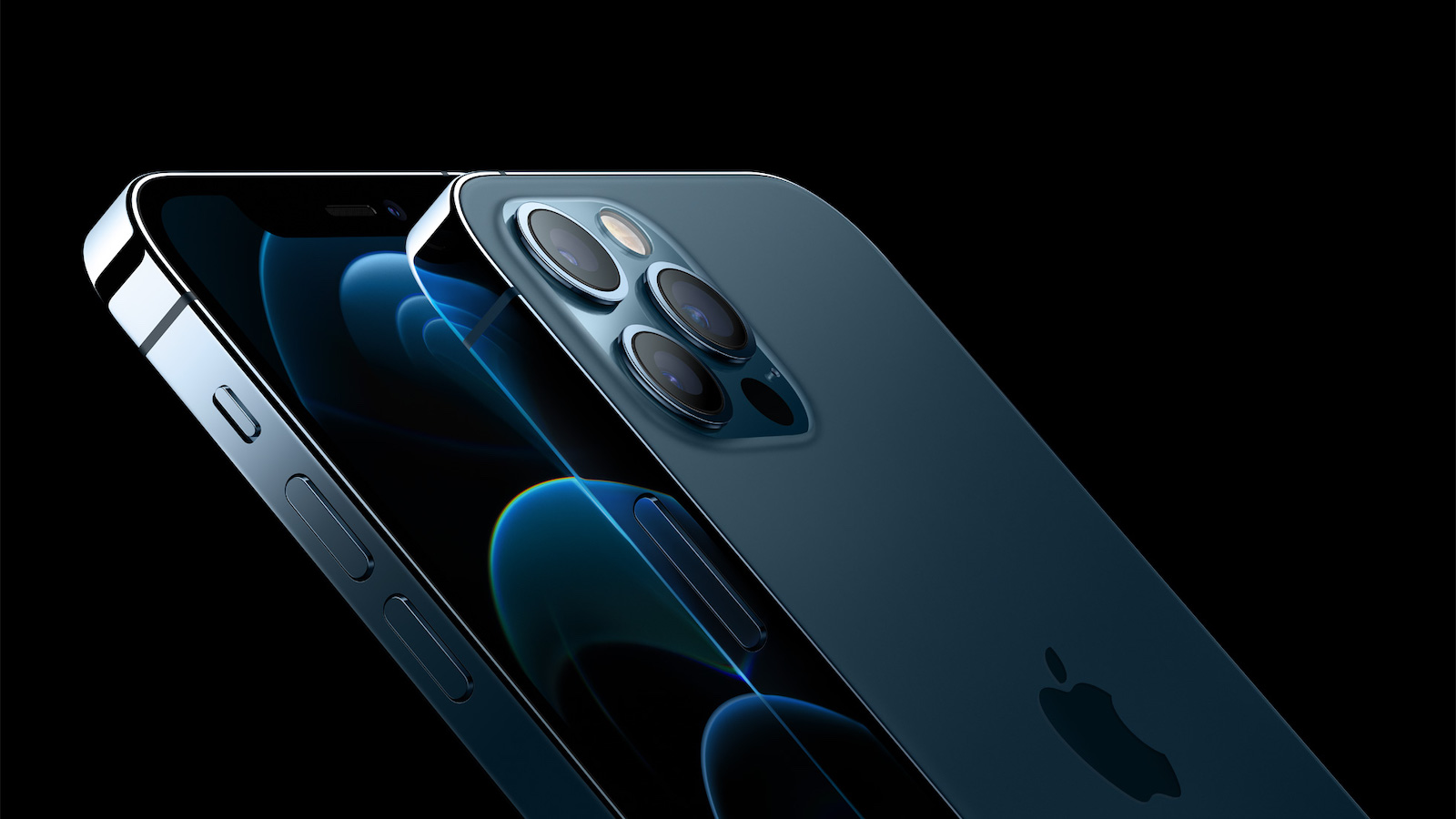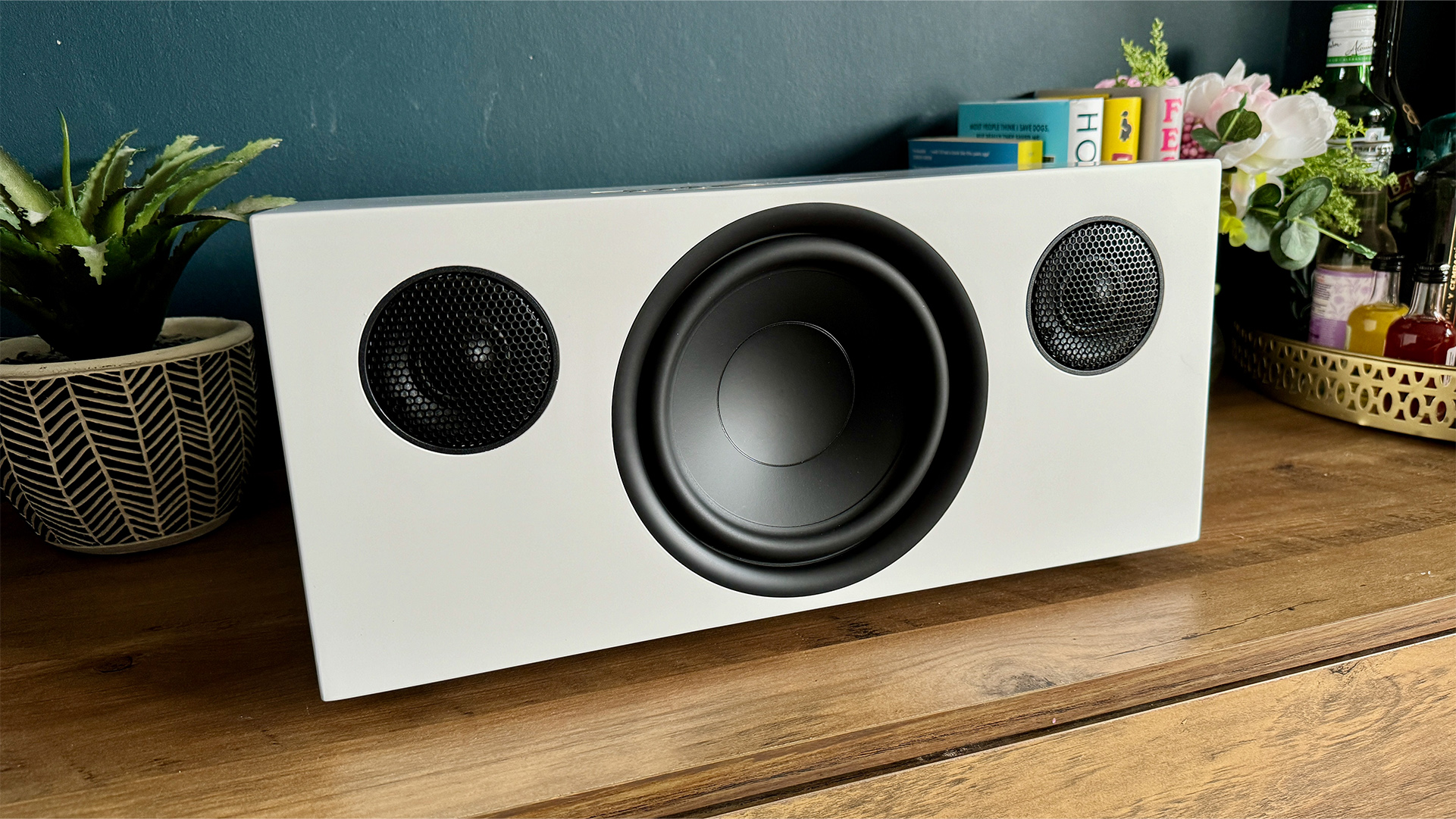Apple announces iPhone 12 range with 5G, new design and big screen improvements
Surprise iPhone 12 Mini kicks off range at £699 ($699, AU$1199)

After a long, COVID-caused delay, the iPhone 12 is finally here. In fact, make that 'iPhone 12s', because there are in fact four models in the new iPhone 12 range.
The big news is that these are Apple's first 5G-compatible iPhones, which means that those with the appropriate contract and coverage will get a much faster data connection than with any previous iPhone.
The range starts with the iPhone 12 with 5G, which shows off the first iPhone aesthetic redesign since 2017. The rounded edges of the iPhone 11 have been replaced by straight edges, and the iPhone 12 is more compact than its predecessor: 11% thinner, 15% smaller and 14% lighter.
While the chassis is smaller, the screen is the same size as before, measuring 6.1in on the diagonal. What's more, it's both twice as sharp and twice as bright as the iPhone 11, with a pixel density of 460ppi and a peak brightness rating of 1200nits. Support for Dolby Vision, HDR10 and HLG should make it a great handset for watching HDR movies and TV shows.
That display is also stronger than before, with new Ceramic Shield technology that apparently makes it 4 x more drop-resistant.
The iPhone 12 with 5G is powered by the new A14 Bionic chip, which Apple promises is the fastest chip ever put in a smartphone. Apple is promising console-quality gaming, with the company singling out League of Legends: Wild Rift for mention. This online game apparently utilises both the A14 Bionic and the 5G connection to deliver a hardcore gaming experience.
The rear camera away consists of two lenses: Apple's existing Ultra-wide lens and a new 12MP wide lens with an f/1.6 aperture that allows in more light and allows for better low-light photography.
Get the What Hi-Fi? Newsletter
The latest hi-fi, home cinema and tech news, reviews, buying advice and deals, direct to your inbox.
The standard-sized iPhone 12 starts at £799 ($799, AU$1349). Pre-orders open on Friday 16th October with deliveries beginning the following week.
iPhone 12 Mini

While most predictions pointed towards there being an iPhone 12 Max, Apple has surprised everyone by going in the opposite direction and instead announcing the iPhone 12 Mini. This is simply the iPhone 12 scaled down to an iPhone SE-like form factor.
Prices for the iPhone 12 Mini start at £699 ($699, AU$1199). You'll have to wait until 6th November to order one of these, with the first deliveries taking place on 13th November.
iPhone 12 Pro

Here, the rumours were right: Apple has indeed announced two new Pro iPhones, the iPhone 12 Pro and iPhone 12 Pro Max.
Predictably, these are pretty much the same phone in two different sizes. Physically, they're more or less the same size as the iPhone 11 Pro and iPhone 11 Pro Max, but the bezels are thinner and the screens larger: the iPhone 12 Pro has a 6.1in screen (up from 5.9in), while the iPhone 12 Pro Max gets a 6.7in screen (up from 6.5in).
Spec-wise, the screens are pretty much the same as that of the standard iPhone 12, so that makes for a pixel density of 460ppi (actually 458ppi on the Max model) and a contrast ratio of 2,000,000:1. Peak brightness is an identical 1200nits with HDR, but the 'typical' brightness is 800nits on the Max models compared to 625nits on the standard iPhone 12.
Like the iPhone 12 models, the iPhone 12 Pros have straight edges, but here they're wrapped in a surgical-grade stainless steel band. They'll be available in four finishes: Silver, Graphite, Gold and Pacific Blue. An IP68 rating ensures the iPhone 12 Pros are waterproof down to six metres, while the so-called Ceramic Shield glass is said to make the screen tougher than that of any smartphone before it.
The rear camera array consists of three lenses; the Ultra Wide and Wide lenses of the iPhone 12, plus a Telephoto lens. But perhaps the biggest news is the addition of a LiDAR scanner. As well as opening up new augmented reality opportunities, this LiDAR scanner enables faster autofocus in low light and introduces Night mode portraits.
One very interesting feather in the iPhone 12 Pro's cap is its ability to film footage in Dolby Vision. As you record video, it will be graded into the advanced HDR format on the fly. Very impressive.
The iPhone 12 Pro can be pre-ordered from 16th October and starts at £999 ($999, AU$1699), while iPhone 12 Pro Max will cost £1099 ($1099, AU$1849) when pre-orders open on 6th November.
MORE:
New iPhone 12 (2020): release date, price and news
Apple HomePod Mini: everything you need to know
Apple AirPods Studio headphones: everything you need to know
Tom Parsons has been writing about TV, AV and hi-fi products (not to mention plenty of other 'gadgets' and even cars) for over 15 years. He began his career as What Hi-Fi?'s Staff Writer and is now the TV and AV Editor. In between, he worked as Reviews Editor and then Deputy Editor at Stuff, and over the years has had his work featured in publications such as T3, The Telegraph and Louder. He's also appeared on BBC News, BBC World Service, BBC Radio 4 and Sky Swipe. In his spare time Tom is a runner and gamer.

